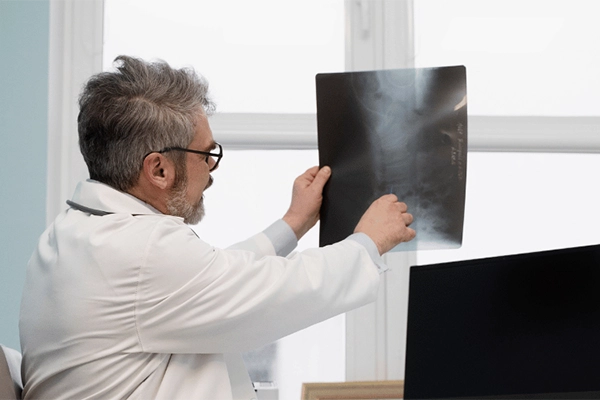Topics
What Is Leptospirosis and How Does it Spread?
According to the World Health Organisation (WHO), leptospirosis affects nearly one million people globally every year, with tens of thousands of deaths.
Leptospirosis is a bacterial infection caused by Leptospira, primarily transmitted through water contaminated by the urine of infected animals, particularly rodents. The infection is common in tropical and subtropical regions, making countries like Malaysia vulnerable. Malaysia often experiences outbreaks, especially after floods, due to contaminated water sources.
People who work outdoors, especially in agriculture, or engage in water activities are at a higher risk of contracting leptospirosis. Exposure to fresh water, rodents, or travel to areas where leptospirosis is common raises the risk. In pregnant women, leptospirosis can increase the risk of miscarriage. Prompt treatment of leptospirosis is critical to prevent severe health issues.
What Are the Symptoms of Leptospirosis?
The symptoms of leptospirosis often begin mildly with flu-like signs such as fever, muscle aches, and headaches. Patients may also experience nausea, vomiting, and red eyes (conjunctival hyperaemia). As the disease progresses, more severe symptoms like jaundice (yellowing of the skin), kidney dysfunction, and respiratory distress may appear. Severe complications like kidney or liver failure may occur if left untreated.
How Is Leptospirosis Diagnosed?
Early diagnosis of leptospirosis is essential for effective treatment and avoiding serious complications. Because leptospirosis symptoms can resemble those of the flu, dengue, or malaria, proper medical testing is crucial.
Your doctor will first ask about your general health and symptoms before conducting a thorough physical examination. Diagnosis is made based on your reported symptoms, physical examination, and investigations.
Laboratory tests
- PCR (Polymerase Chain Reaction)
- Best for early diagnosis in the first phase of the illness (bacteraemia phase).
- Detects leptospirosis bacteria in blood, urine, or cerebrospinal fluid (CSF).
- Highly sensitive and provides rapid results.
- Serology tests (Antibody Tests: IgM and IgG)
- Reliable after the first week of illness.
- Detects the body’s immune response to leptospirosis.
- MAT (Microscopic Agglutination Test)
- Considered the gold standard for leptospirosis antibody testing.
- Performed in specialised labs, often not available in regular commercial labs.
- Commercial tests (ELISA, IgM-specific Tests)
- These tests should be confirmed with MAT for accurate diagnosis.
- Culture test
- Can grow the leptospirosis bacteria from samples but is slower and less sensitive than PCR.
Differential diagnosis
Other diseases with similar symptoms include malaria, dengue, hantavirus, and non-infectious conditions like vasculitis and thrombotic syndromes.
What Treatment Options Are Available?
Leptospirosis can be effectively treated, particularly when detected early. The primary approach is antibiotic therapy, supported by symptomatic treatment if necessary.
- Antibiotic: Antibiotics such as doxycycline or penicillin are commonly used to treat leptospirosis. These antibiotics are most effective when administered in the early stages of infection. If the disease is diagnosed at a later stage, intravenous antibiotics may be required.
- Supportive care: For more severe cases, supportive care plays a vital role. Patients may require renal replacement therapy, ventilatory support, and blood transfusions.
What Are the Preventive Measures to Avoid Infection?
Preventing leptospirosis starts with reducing exposure to environments where the bacteria thrive. Avoid swimming or wading in water that may be contaminated, especially after floods. If you work outdoors or in agriculture, wear protective clothing such as waterproof boots and gloves to limit skin contact with potentially infected water or soil.
Additionally, good hygiene practices such as washing hands thoroughly after handling animals or contaminated surfaces can help reduce the risk. Maintaining clean environments and controlling rodent populations play crucial roles in preventing leptospirosis.
FAQs: Frequently Asked Questions
-
Is leptospirosis contagious?
Leptospirosis is not contagious from person to person. It is most commonly contracted through exposure to water or soil contaminated by infected animal urine.
-
What should I do if I suspect I have leptospirosis?
Seek medical care immediately if you suspect exposure to leptospirosis or experience flu-like symptoms after being in a high-risk environment. Early treatment with antibiotics is essential.
-
Can leptospirosis go away on its own?
No, leptospirosis requires medical treatment. Without antibiotics, the infection can worsen and lead to severe health complications.
-
Are there long-term effects of leptospirosis?
In severe cases, leptospirosis can cause long-term organ damage, particularly to the kidneys or liver, especially if treatment is delayed.
Book an Appointment at Pantai Hospitals
Leptospirosis is a serious but treatable infection when detected early. Left untreated, it can lead to life-threatening complications. If you live or work in an environment where leptospirosis is common or have been exposed to contaminated water, it is crucial to remain vigilant and seek prompt medical care at the first sign of symptoms. Early diagnosis and treatment can prevent severe complications and ensure a swift recovery.
If you have questions about leptospirosis, contact us to book an appointment at your nearest Pantai Hospital and receive professional advice to help kickstart your health journey. To make an appointment for health screening, please contact the health screening centre at the Pantai Hospital nearest to you.
Pantai Hospitals have been accredited by the Malaysian Society for Quality in Health (MSQH) for its commitment to patient safety and service quality.
















